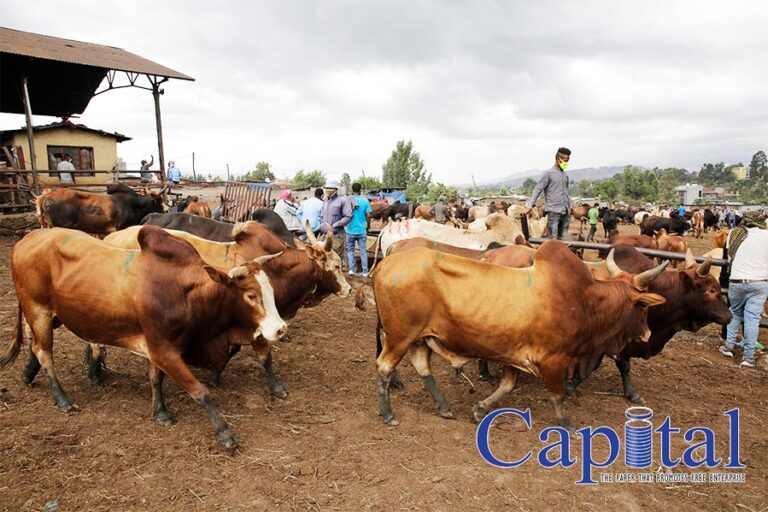Ramadan, Easter and Passover converged this month, with three of the major faiths in synch; practicing principles of generosity, forgiveness and hope for humanity. Ramadan reveres the revelation of the Quran’s first verses to the prophet Mohammed by God; Easter/Fasika celebrates the resurrection of Iyesus Kristos after the crucifixion; and Passover honors the liberation of Hebrews from slavery in Egypt. These landmark events form part of the foundation of the three faiths spiritual compasses, meant to enhance relations with the Most High, providing guidance on human interaction and agency. Essentially, these significant holy-days do or should reflect the benevolent and loving qualities of the Creator, espoused by their representatives on earth.
As people of the world face significant challenges from climate change to pandemics and inflation to political mayhem, spiritual sources are needed more than ever to restore faith, provide comfort, hope and trust. Regardless of religious/spiritual orientation; core beliefs of charity, grace, love and patience should prevail and be used as tools to help heal a wounded earth. The convergence of the above holy days therefore may be less of a coincidence and more of a necessity. Billions of people worldwide may be on the same frequency as they celebrate with their families, friends and communities. Bob Marley sings, “There’s a natural mystic blowing through the air. If you listen carefully now you will hear.” It is time for us to listen to each other. And that does not mean we have to agree, but IT IS about the spirit in which we share our thoughts, fears and ideas.
This season is also significant to Rastafari in the Caribbean and beyond. In a feat of faith and an effort to spread love and recognition for Africans in the Diaspora, specifically the Caribbean, His Imperial Majesty Emperor Haile Selassie I embarked on a historic journey to the region April 18th to 24th 1966. From Ethiopia with love, His Majesty’s first stop was Trinidad and Tobago on April 18th closing with His visit to Haiti on April 24th. However, it is the story of the rain which fell on the hot airport tarmac in Kingston Jamaica on April 21st that towers over the tales of His visit to the other islands. The phenomenal visit may have helped save the lives and livelihoods of thousands of RasTafari suffering in Jamaica. Still under colonial rule, the policies enforced bodily harm, arrest and even deaths to Rastas for their Pro African spirituality.
Exactly three years before The Majesty arrived, the government of Jamaica unleashed a violent assault on Rastafari torturing and unlawfully detaining hundreds from April 11 – 13, 1963. The siege ended three days before Easter on Good Friday, according to Christian calendar, and would be dubbed Bad Friday to date. The government of Jamaica has recently apologized to the Rastafari, providing reparations and initiatives aimed at healing and restoring relations between the staunch Ethiopic Pan African citizens and the state. It’s a work in progress, which The Majesty’s visit helped to propel fifty- six years ago.
During the auspicious visit to Jamaica, The Emperor laid the cornerstone for the Haile Selassie I Secondary School and Holy Trinity Ethiopian Orthodox Tewehedo Church, both in the capital city of Kingston. Abuna Yeshaq was directed to Jamaica in 1970 to minister to the Rastafari community and many would be baptized including Bob Marley, named Berhane Selassie and his wife Nana Rita Marley, named Ganette Mariam. The entire Marley Clan was baptized by Abuna Yeshaq who passed in 2005, requesting burial in Jamaica based on two important reasons. One was the Jamaican people’s love for His Majesty and Ethiopia the second was his disapproval of the EPRDF ruling party’s decision to violate the EOTC cannons by appointing a new Abuna as opposed to the post being for life. Jamaica was happy to receive their beloved Abuna and provided a funeral in the National Arena. Attendees included government officials, international dignitaries, reggae musicians and naturally hundreds of Rastafari with ceremonial drumming and chanting in Amharic and Ge-ez.
The moral of the story is to hear and feel this special moment in time as we celebrate the diverse host of holy days. We should examine our hearts, minds and even pockets to see what we can do for the less fortunate, the forgotten and those in need of healing and support. Every life is valuable and sacred and we all have a duty to be the positive change that is needed to reclaim our humanity. There are indeed many examples of this, great and small. However if we take the spirit of the season as an everyday occurrence, maybe we can instill our duty to each other beyond religion, ethnicity, nationality or any other category.
To close with some more of Berhan Selassie’s lyrics,
“Rise up this morning, smiled with the rising sun,
Three little birds, Pitch by my doorstep
Singin’ sweet songs Of melodies pure and true,
Sayin’, “This is my message to you-ou-ou:”
Singin’: “Don’t worry about a thing, worry about a thing…
“‘Cause every little thing gonna be all right.”
Dr. Desta Meghoo is a Jamaican born Creative Consultant, Curator and cultural promoter based in Ethiopia since 2005. She also serves as Liaison to the AU for the Ghana based, Diaspora African Forum.










